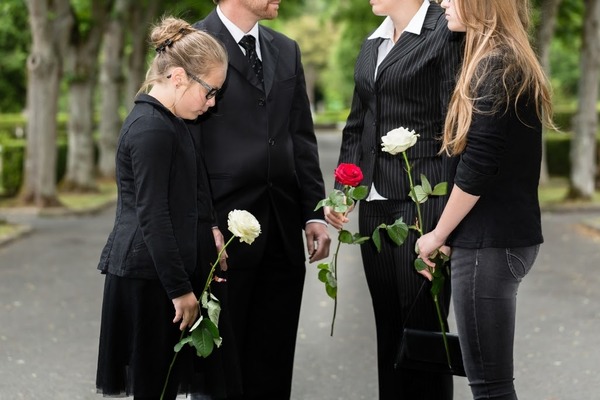
People who contact attorneys regarding possible wrongful death claims often ask if an autopsy is necessary for their claim to proceed. Unfortunately, the answer is not clear and depends on the circumstances surrounding the death. No law requires an autopsy in a wrongful death case. However, keep in mind that if you file a wrongful death claim, you are the plaintiff. As the plaintiff, you bear the burden of proof. In other words, you must present enough evidence to prove that the death was the result of someone else’s wrongful behavior. One line on a death certificate under “cause of death” may not be enough.
This is when autopsies in a wrongful death case become essential. You must be able to draw a direct line from wrongful behavior to the outcome of death. This is called proof of causation. If you cannot prove causation, you cannot win. And if you cannot prove causation, you may not even be able to find an attorney to take your case.
Routine Autopsies Are a Thing of the Past
In years past, hospitals routinely performed autopsies. Even when medical personnel believed that they knew why a patient died, autopsies were regularly conducted to verify the exact cause of death. Often, the results of an autopsy confirmed the medical assessment and apparent cause of death. However, in a significant number of cases, autopsies provided shocking and unexpected conclusions. These revelations were quite valuable to the medical community, as they literally helped doctors learn from the dead. They could see possible fatal outcomes of procedures or drugs that were previously unknown. This information could change medical therapies and protocols and help save lives in the future.
However, at other times, shocking results pointed to medical mistakes. These surprising outcomes were not a welcome feature of routine autopsies since they sometimes led to malpractice lawsuits. Clearly, medical professionals are interested in keeping down the number of malpractice cases filed against them each year. Cutting down on the number of routine autopsies generally decreases legal liability for hospitals and doctors. As a result, autopsies are now reserved for unusual cases where the cause of death is unknown or where criminal activity is suspected. Each county in Washington State has a medical examiner who conducts autopsies in such cases. However, families can request an autopsy if one is not automatically provided.
When Should You Request Autopsies in a Wrongful Death Case?
Many deaths are readily explainable by obvious causes. But this is not always the case. In Washington, close family members may request an autopsy, even if the doctor does not suggest one. So if your loved one’s death leaves you uneasy, unsettled, or confused as to what happened, you may want to consider making this request.
It is never an easy decision to make. Most people recoil at the thought of someone they love being laid out on a table and surgically tampered with after death. The image can be unsettling for some and almost unbearable for others. But family members must weigh the benefits of an autopsy against these unsettling feelings. Families should consider the long-term emotional cost of never knowing exactly why a loved one died. Confusion and lingering unanswered questions can increase death’s traumatic impact on those left behind. Family members should discuss this openly and be very honest with one another. The pain of subjecting a person to an autopsy is often short-lived. But the trauma of not knowing how or why they died can persist for decades.
Autopsies Serve Two Functions
An autopsy can serve two essential functions. If you suspect that negligent conduct is responsible for your loved one’s death, you may have a wrongful death claim. Filing such a claim holds the wrongful party accountable for their actions and can help ensure that they never repeat their behavior. It can also help families recover from the financial losses associated with death. And while autopsies are not required for a claim, they can make a world of difference in the outcome. Without one, some cases do not have enough evidence linking the neglect to the harm caused—and may never see the light of day. In other instances, autopsies provide additional evidence that confirms your suspicions and solidifies your case.
However, you should be aware that autopsies can also disprove negligence entirely. But either way, surviving family members at least get a true answer. Regardless of the outcome, knowing the truth can give loved ones a much-needed sense of closure and help them heal after such a tragic loss.
A Lawyer Can Help
If you are uncertain about the wisdom of requesting an autopsy, speak to an experienced lawyer. They can advise you regarding whether the facts of your case point to negligence and whether an autopsy can benefit any potential claims. Attorneys can also assist you in asserting your right to an autopsy. In Washington, each county has a medical examiner who performs autopsies. However, there may be a risk of bias present. If so, an experienced lawyer can advise you to seek a private pathologist to perform the procedure. Either way, waiting too long to contact a lawyer and request an autopsy can jeopardize your ability to file a wrongful death claim. Time is of the essence, so don’t delay.
You Can Count on Us
When trying to make difficult decisions like whether to request an autopsy or whether you have grounds for a wrongful death claim, the attorneys at Brett McCandlis Brown & Conner PLLC, can help. We have decades of experience with Washington wrongful death cases. We can examine the facts of your case and give you wise counsel on how to best proceed. So if someone you love has died and you suspect foul play, please call us as soon as possible. A wrongful death claim may not bring back your loved one, but it can ensure that the culpable parties are held accountable. And it can provide your family with financial help just when you need it most. Give us a call for a free consultation, or contact us online today. We look forward to serving you.


